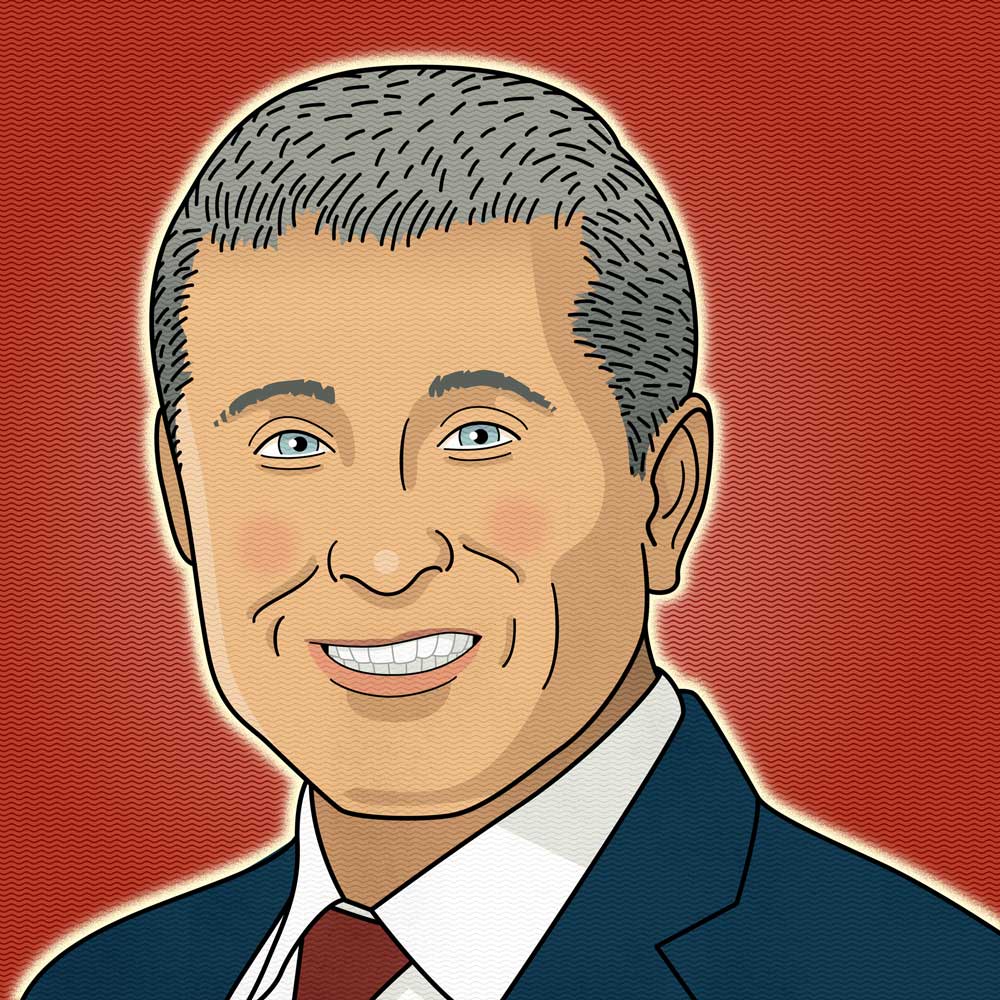
t’s hard to appreciate how much more we know about COVID now than we did back then, but when I first got sick, we did pretty much everything wrong. When I developed a 103-degree fever and a cough, local doctors thought it was pneumonia. I was popping Motrin like it was M&Ms, trying to get my fever down, and on the day I was hospitalized the first doctor I saw wasn’t even wearing a mask. The longer they kept me, though, the more protective gear people started to put on — masks, then masks and gowns. When my wife, Kim, needed to use the bathroom and they told her she couldn’t leave the room, we just looked at each other. At that point we knew what they thought it was. A couple hours later I was unconscious, intubated and on my way to MGH as the hospital’s first COVID patient.
I was in the MGH medical ICU for 32 days, though I have exactly two memories of that time. One was hearing my daughter Hadley’s voice during a FaceTime call. The other is a nurse coming up to me as I left the hospital for Spaulding Rehab to give me a hug and saying something like, “I’m probably not supposed to do this, but I can’t not hug you.” She’d obviously taken care of me at some point during my hospitalization — maybe a lot of it — but I had no recollection of that. At the Spaulding, a calendar on the wall said it was late April and I was shocked. The last thing I knew, it had been March 13.
Honestly, I really didn’t get a full understanding of my story — how sick I’d been, how close I’d come to dying — until the New York Times wrote about me in May. I’d been on ECMO [extracorporeal membrane oxygenation; a last-effort lifesaving measure used to pump oxygen into patients’ blood when their own lungs aren’t capable of doing so] and every medication that was available at the time. My lungs were completely whited out — one of the worst chest x-rays one of my doctors had ever seen. Even turning my body to prevent bedsores was enough to make my oxygen level crater. At one point, Kim asked the medical team for an honest assessment of whether I’d survive and they told her it wasn’t likely. She told me later, though, that she always knew I would come home. I give her so much credit — she was just a rock for our family, strong, focused and positive-thinking.
The people who have been on the COVID frontlines are heroes. That’s a term that gets thrown around lightly, but I really mean that. I’ve always had an appreciation for the medical community because of the work I do, but after the past year — not just knowing about my own experience, but hearing about the way people are putting themselves out there day in and day out, putting their own health and safety at risk … it’s even more personal to me.
Today, I’m doing fantastic. I’m completely recovered. I’ve always been an active, outdoorsy person — biking, running, hiking, skiing — and I’m back to all of that. I even caught my first tuna last summer, so 2020 wasn’t all bad. I live my life, but I do it safely.